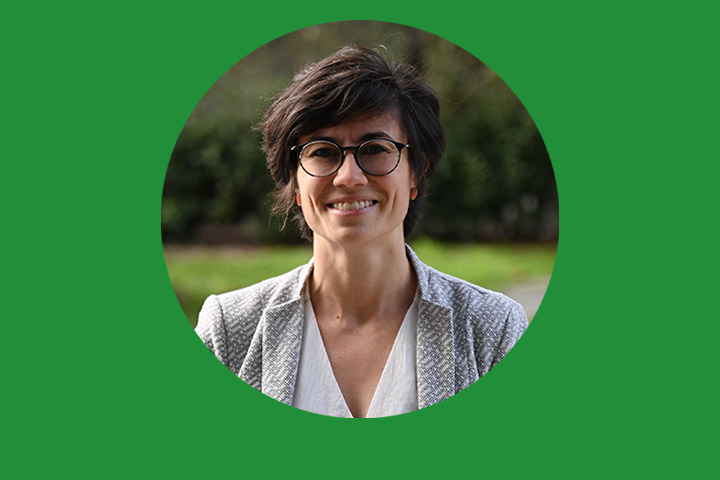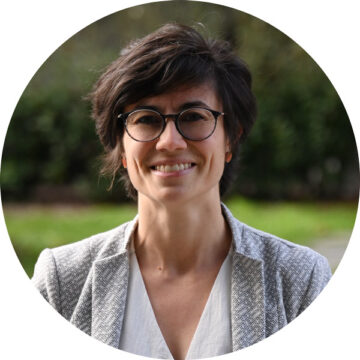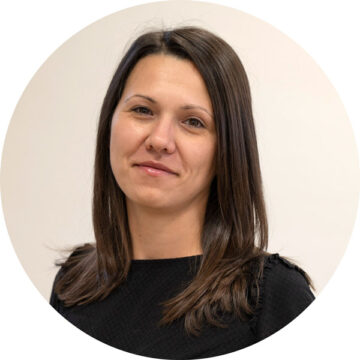
Interview (Women’s Voices series) – Lisa Roux

This month in Women’s Voices, Milesa Simic, a PhD student at IMN, met Lisa Roux, director of research at CNRS and currently head of the ‘Neurophysiology of Natural Behaviour’ team at the Institut Interdisciplinaire de Neuroscience (IINS).
Could you give us an overview of your academic background?
My path has been a bit winding because I didn’t immediately know what I wanted to do and took opportunities as they came. I began with a year in an integrated preparatory program at INSA Lyon in a “sports-study” track. I was — and still am — a tatami enthusiast! I quickly realized it wasn’t the right fit: my grades were good, but I took no pleasure in attending classes, and the “corporate” mindset of engineering school didn’t match my somewhat introverted personality at the time.
After one year, I decided to reach out to the University of Lyon 1, where the head of the Biochemistry program accepted me into the second year of the DEUG (yes, that degree still existed!) (DEUG refers to a former national diploma of French higher education, awarded at bac+2 level). So, with a DEUG in hand, my athletic achievements led me to be recruited by a judo club in Paris, which offered me a significant income for a student. I moved to Paris, enrolled in the third year of a Biology degree at Paris 6 University, and trained nearly daily at INSEP (French National Institute of Sport, Expertise, and Performance). Since I missed many classes due to training, friends recorded them for me, and I listened to them in the evenings or while running.
Initially, I thought I’d focus on oncology, but a fantastic professor introduced me to neuroscience, and I decided to pursue that path. I completed a Master’s in Integrative Biology and Physiology with a Neuroscience specialization, then did my thesis at the Collège de France under the supervision of Christian Giaume, researching neuron-glia interactions in the mouse olfactory bulb. Although my PhD experience was challenging — I even considered switching to medicine at one point —, I think I was already “hooked” on research, and the end of my PhD was intense but scientifically fulfilling. It was also a rewarding period on a personal level, as I met many scientific friends with whom I’m still in contact.
For my postdoc, I had the choice between several labs — MIT, Harvard, CSHL —, and I chose Gyorgy Buzsáki’s lab at New York University (NYU), where I stayed for six years. My work on hippocampal oscillations there earned me a significant NIH grant (K99) to pursue my own projects and potentially set up a lab in the United States. Despite this great opportunity, I ultimately decided to apply for a Bordeaux Neurocampus chair pf the Regioneal Council, a chair from the Bordeaux University IdEx program, an ATIP-Avenir grant and then for a tenured researcher position at the French national concours. As all of these applications worked, I returned to France at the end of 2017 with a researcher position at the French National Centre for Scientific Research (CNRS), a research team at IINS, and two young sons.
In your opinion, what has been the most important challenge you’ve faced to reach this stage in your career?
It’s hard for me to answer because, for me, there isn’t one single challenge but a multitude of challenges that are part of everyday life. However, the start of my postdoc — where I knew absolutely nothing about the techniques and analyses used in my new lab — was a significant challenge, as I faced the unknown and had strong doubts about my ability to meet expectations. I was also very young compared to the Americans, whose PhDs typically take longer than in France. At that time, I told myself I had to stay “low-key”, observe, take notes, read, ask questions… and maybe it would eventually fall into place. I was fortunate to be surrounded by extremely supportive and competent people who helped me overcome this challenge. Generally, we rarely overcome a challenge alone!
Do you feel that you have made personal sacrifices to obtain your actual position?
The position at CNRS was never an end goal in itself, perhaps because I wasn’t sure until the end of my postdoc that I wanted to return to France. Also, my scientific objectives and curiosity have always taken precedence over the notion of a career in the strict sense. Beyond that, I feel I was quite lucky and I did not deprive myself of much during my research journey: I discovered a new country, made new friends, continued with sports, and had children… That said, being a researcher is undeniably a demanding job, often referred to as a “passion” job. This implies working a lot but also that it’s sometimes hard to “disconnect”: lab problems or project ideas always resurface in my daily thoughts, even when I least expect it. I chose this career knowingly, and I love its intensity and the constant intellectual stimulation it provides. The term “sacrifice” sounds very negative. For me, it’s less of a sacrifice and more of a choice: the choice to fully live this career, sometimes at the expense of my peace of mind or my weekends. This would, of course, be impossible without unwavering family support.

Do you feel that you still need to prove that you are worthy of a leadership position because you are a woman?
My colleagues don’t give me that impression; they are generally quite respectful and encouraging. In fact, it’s thanks to some of them that I had the courage to apply for the position of research director, and I am very grateful for their support. However, I constantly have to fight against my own self-image and the famous “imposter syndrome,” which affects me, as it does many other women. This syndrome isn’t a myth! Strangely, the word “imposteuse” (feminine version of the masculine word imposteur in french) doesn’t even seem to exist in the (French) dictionary. Personally, I’ve learned to live with it, to keep moving forward by focusing on action rather than on negative thoughts. My strategy generally works… but not every day!
If you could travel back in time, when in your career would you return, and what would you change?
I don’t think I would change anything. My choices have always followed my desires at the time, and I was lucky enough to be able to redirect my path when needed. Overall, I have no regrets because I learned something at each stage of my journey.
If you had a piece of advice to give to young female researchers, what would it be?
For researchers who are already fortunate enough to have a position, I would say it’s important to learn how to manage the added demands of being a woman in a still very male-dominated field — especially after the postdoc stage — that is trying to address its biases. Finding the right balance between community involvement, contributing to female representation, and one’s own research work — which should, I believe, remain central — is key. More broadly, I’d tell young female researchers to trust themselves and not to impose barriers on themselves. Even if a goal seems “crazy” or unreachable, first of all the journey is worth it. Furthermore, it’s always possible to change course. And last thing you might have a pleasant surprise at the end: you may reach your goal!. So, if you love research, be bold and give it a try!
About “Women’s voice”

This interview was done by Milesa Simic (PhD student at IMN)
Women’s Voices is an interview published in Brainstorm (every two interviewes) and on Neurocampus’ website created in partnership with the Neurocampus Parity and Inclusion Committee (NeuroPIC) a local group committed to promoting equality and organizing actions to close the gap between women and men in academia. The goal of this section is to increase the visibility of early career female researchers at the Bordeaux Neurocampus of the University of Bordeaux. We interview researchers about their scientific contributions, insights and opinions about equity, diversity and gender bias in academia. Through these interviewes, we aim not only to highlight their achievements but also to serve as inspiration for our scientific community and other female scientists.
Last update 06/12/24
